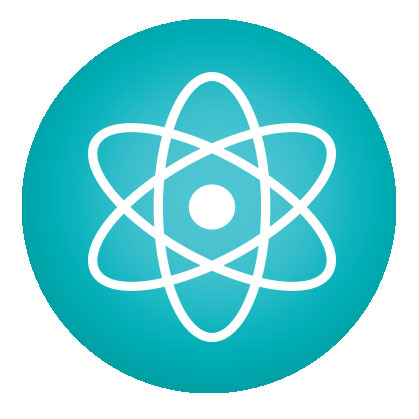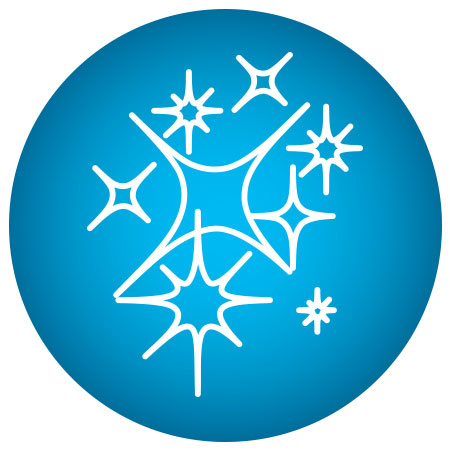Hidden Light

Rebbetzin Heller paints a picture of the eishes chayil as a woman strong in her ability to set boundaries
Parshas Parah begins with the halachos of the Parah Adumah. It opens with the words “Zos chukas haTorah,” these are the laws of the Torah. If the upcoming topic is the red calf, why
Hashem tells us the reasons for many of the mitzvos. But when it comes to Parah Adumah, He says, “This is one mitzvah you can’t understand. Do it because I said so.” Shlomo Hamelech, says the Chasam Sofer, realized he could never understand the mitzvah of Parah. Even though he had clarity about everything, he realized there are things he’d never be able to grasp.
In life we encounter difficulties and challenges. Sometimes we get a tiny glimpse of the big picture, a revelation, and we understand the purpose of our challenges. But most of the time we don’t. We only see our daily struggles, and we need to deal with the unanswered questions: the why, the how, the what now. We may feel overwhelmed. The parshah of Parah Adumah gives us a new coping mechanism.
The chok isn’t only about the Parah Adumah, it’s about the Torah. We can’t fathom how Hashem operates the world. We have to trust that He runs it in the best possible way, leave our questions behind, and do His will.
Although times of stress, when I feel like I’m sinking, are painful, I can take comfort in the knowledge that one day, hopefully very soon, we’ll all understand.
—Mrs. Malkie Klaristenfeld, Director and founder of Knafayim Director of volunteers for Project Chai of Chai Lifeline
Ignite
What can busy women do from now until Pesach to have a more uplifted Yom Tov?
It’s much easier to prepare for Pesach if we keep our eye on the goal. Some suggestions to remind us what Pesach is all about, and to awaken excitement for the Leil HaSeder:
- Purchase a new Haggadah now. There are so many choices; find something that appeals to you. Spend 15 minutes looking at your Haggadah each Shabbos from now until Pesach. Scan the pages to become familiar with the flow, or read short, meaningful pieces. You’ll come to the Seder not as a stranger, but as a participant.
- Recognize the magnificent opportunity that lies ahead. The seforim tell us that Pesach was the birth of Klal Yisrael, and that this potential for rebirth and renewal potential recurs every year on Pesach, and particularly on the Leil HaSeder. The word “Pesach” means “to skip over.” Hashem allows us to “skip” many steps in the typical process of growth and improvement. When we fulfill the mitzvos of Pesach, we can easily reach levels of emunah that are much more difficult to access the rest of the year. We can transform ourselves and become great!
- Be your own cheerleader. When things get rough, tell yourself — and your children — “We’re not cleaning because we love cleaning, we’re cleaning because we love Hashem.”
—Mrs. Shani Mendlowitz, Menaheles of Bais Yaakov Seminary of Montreal, and a popular lecturer for women.
“With Hashem, you can cross the sea; without Hashem, you cannot cross the doorpost.”
—Rabbi Mordechai of Lechovitz
A Book That’s My Guide
Making It All Work: Women Surviving and Thriving At Work by Ari and Myriam Wasserman, especially the foreword by Rebbetzin Tziporah Heller. Rebbetzin Heller paints a picture of the eishes chayil as a woman strong in her ability to set boundaries. We’ve trained our daughters to be kind and sensitive to others’ needs, but this essential Jewish characteristic can be a disadvantage in the workplace if a woman has difficulty detaching from the nurturing role when dealing with members of the opposite gender. The critical importance of erecting boundaries, to prevent inappropriate and personal bonding, in saying no even when feeling uncomfortable, has been key for me in maintaining my integrity and connection to my Higher self and core values in the workplace.
—Ahuvah Ribner
Wonders of Jewish History #2
The greatest wonder of history is the eternity of the Jewish People. In this section, we explore moments when, in retrospect, we see Hashem’s Hand orchestrating events or planting the right person at the right time.
The hundreds of years following the Churban were full of turmoil and torment. We survived that period due to infinite instances of astounding hashgachah, as well as many supernatural miracles. Here are two, which gave us our leaders:
A carob tree sprouted overnight and a spring of water was suddenly created, enabling Rabi Shimon Bar Yochai and his son to survive for 13 years in a cave. From the period of the Spanish Inquisition, through Chmielnitzki, Shabtai Tzvi, and the Holocaust, the Jewish People faced their worst challenges. But by then, the secrets of the Torah Rabi Shimon bar Yochai revealed had begun making their way to the masses through the Arizal, the Baal Shem Tov, and the Vilna Gaon, giving our nation the perspective and encouragement we needed to survive.
A Jewish baby and his parents were fated to be killed by the Romans for the “crime” of keeping the mitzvah of bris milah. Miraculously, a non-Jewish woman agreed to exchange her infant with the Jewish infant, fooling the Roman authorities. That Jewish baby grew up to be Rabi Yehudah Hanasi, the redactor of the Mishnah, who ensured the Torah wasn’t been lost.
Giving Life
I developed secondary infertility due to POF (premature ovarian failure) at the age of 30 after my fifth child. After extensive unsuccessful treatments by top specialists over the course of four years, my husband and I sat down to what was to be our last consultation with a top REI (reproductive endocrinologist and infertility) doctor to discuss our future. He said we’d exhausted every medical option and there was nothing else to do.
“What’s the possibility of my wife having a baby naturally?” my husband asked.
“You have a one percent chance,” he responded.
To me that was the final nail in the coffin. I’d felt that as long as I was going for treatments, no matter how physically, financially, and emotionally draining they were, there was hope. But when I heard those words, I felt like all was lost.
I left the office and started the process of mourning the dream of having more children, coming to terms with what Hashem felt was best for my family, and moving on to enjoy the abundant brachahs and beautiful family that I had.
About six months later, inspired by an article I’d read in Family First, I reached out to Renewal about donating my kidney. I had such a strong desire to give life. If I couldn’t do it through having more children, at least I could give another person a new lease on life by giving them my kidney.
I went through the preliminary testing, and was matched. We then asked a sh’eilah if I should go ahead. After explaining the whole situation, the gadol said, “Doctors don’t decide who has children; don’t donate your kidney.”
I was very disappointed, but I’ve followed daas Torah all my life, and this was no exception.
To say I was shocked to find out a month later that I was expecting would be an understatement. I had a one percent chance; how was this possible?
Could it be that Hashem took the zechus of my willingness to give of myself to an anonymous person and used that to give me a baby? We don’t know the hidden ways of Hashem, but we’re incredibly grateful for our precious baby.
(Originally featured in Family First, Issue 733)
Oops! We could not locate your form.








